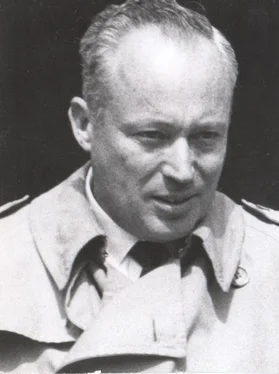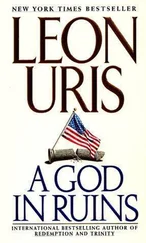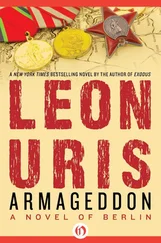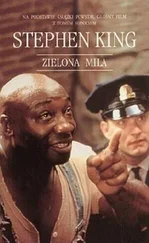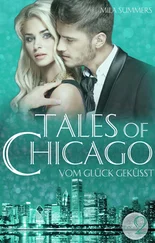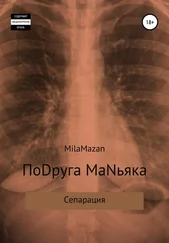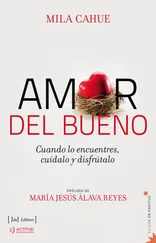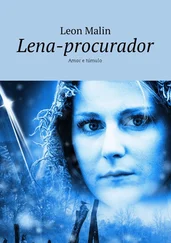In a few moments the children played games that children play in a ghetto. They played the game of “smuggler,” hiding an object from the searching “Nazis and Nightingales.” They played “escape,” weaving in and out of passages of the abandoned house to reach the “Aryan side” past the “Polish Blues.” They played “Jewish Fighters and Germans,” peppering each other with imaginary bullets and bombs.
Everyone wanted to be Atlas and Jan and Chess Master and Tolstoy. The girls wanted to be Tanya, like Ana Grinspan, or Rachael Bronski. No one wanted to be Pharaoh or Brunhilde or Nazis or Nightingales or Polish Blues.
“Bang! Bang! I caught you, Jew!”
A little boy tripped and fell in the courtyard and his nose bled. He did not cry although he was in pain, for he was taught not to cry when he was hurt. Nazis and their dogs listened for crying children, to find hiding places.
Deborah hugged the boy and stopped the bleeding. In a moment he darted up the steps to resume the game.
She looked at her watch. In a moment Rachael would be coming. Strange, Deborah thought, that after a time a person would begin to take on the characteristics of a rat or a mole. Living beneath the earth should dim human values. Tragedy should immunize one to pain. Darkness should ease loneliness. It was not that way at all. Her heart ached again and again when the Fighters brought a warped little body to the children’s room in Mila 18. A whimpering skeleton salvaged from the cold sidewalk or dark alley or abandoned, shattered room. Deborah cried when it was dark for their wild little eyes and their sharp nails which lashed out like those of frightened animals. She cried at the slow, torturous inability to respond to tenderness.
How she missed Rachael. That loneliness never left her.
And Stephan. The gnawing fear each time he left the bunker with Andrei. How many times can a person die without the nerves dying too?
If only Rachael could stay with her. It was dangerous for the girl to come out of the Franciskanska bunker at night to visit. But Rachael should be with Wolf. There was no room for the children other than at Mila 18.
“Saska Kempa,” a Fighter called down from the roof.
“Grochow,” a girl’s voice called up from the street, answering the password.
Rachael was coming diagonally across the courtyard. Deborah could not distinguish her face from the distance. She wore new knee-length boots and a leather jacket crisscrossed with a pair of bandoliers. Grenades were hooked into the belts, a rifle was slung over her shoulder, and her black hair was knotted up under a worker’s cap. In her hand she carried Wolf’s guitar. Despite the subterfuge, it was still Rachael. Nothing could keep her from walking like a woman. Nothing could taint her softness.
“Hello, Momma.”
“Hello, darling.”
They kissed cheeks.
“Where is Stephan?”
“Out with Andrei. Why isn’t Wolf with you?”
“He’s holding pistol drill at the factory.”
“Maybe you shouldn’t come out alone at night.”
“Momma, I’m a soldier.”
Deborah took off her daughter’s cap and unpinned her hair and let it fall down on her shoulders. “Don’t be a soldier for a while,” she said.
Rachael nodded.
“I caught you,” cried the voice of a child. “Off to the Umschlagplatz!”
“Such wonderful games they play,” Deborah sighed. She sat down with her daughter on the top step and watched the children dart in and out of the courtyard. “You look fine!” Deborah said aimlessly.
“You don’t, Momma. Are you sick?”
“No. Just that ... every once in a while this unreality becomes real and you stop working long enough to think. You’re in a hole under the ground, and the only way out is death. When I have time to think I become frightened. Just plain frightened.”
Rachael patted her mother’s hand. “It’s strange, Momma, but being with Wolf ... He has a way about him. I’ve always the feeling that we will get through.”
“That is a good way to feel,” Deborah said.
“Yes,” Rachael said quickly. “He makes everyone around him feel that way. I can hardly believe it sometimes because he’s just like a little boy. He didn’t let me go on the Brushmaker’s raid, but everyone told me afterward how he was. Calm—like ice. A real leader. I just know we can get through anything together.” Rachael stopped short. What was she saying? Speaking of the hope of freedom to her mother, when her mother’s position was hopeless. “I’m sorry, Momma ... I didn’t mean ...”
“No, dear. It’s nice to hear a voice filled with hope.”
“Tell me about it, Momma.”
“With Susan gone, I have no girl friends to talk to. You are my best girl friend now.”
“I’m glad.”
“Simon and Alex and Andrei are moving heaven and earth to get Chris out of the ghetto. He’s the most important man here now. Alex calls him our passport to immortality. One day he will have to run for it. He must go alone, of course. It’s killing him, and it’s killing me.”
Deborah lay her head on her daughter’s shoulder and sobbed softly, and Rachael comforted her.
How terrible for Momma to love without hope. Each day a hell of torture and the knowledge of inevitable doom. The inability to combat it, cry out against it. With Wolf there was hope, always hope.
“It’s all right, Momma ... it’s all right ...”
Deborah was wound up like a spring.
“It’s all right, Momma ... it’s all right ... shhh ... shhh.”
“I don’t know what’s come over me. It’s just that being shut in that bunker all day with the children ... pretending to them ... making believe everything will be all right. They know I’m an awful liar.”
“Tante Rachael!” Moses Brandel cried at discovering the visitor from Franciskanska.
“Tante Rachael is here!”
Children converged toward them from all corners of the building. Deborah dried her eyes. “It’s time for us to get back,” Deborah said.
They crawled through the tunnel into the Majdanek room. Rachael and Sylvia and Deborah lifted the children into layers of straw bunks and tucked them in. They lay close to the edge, tiny little faces looking to the lone candle on the wooden table near Rachael. Rachael strummed Wolf’s guitar, and her thin voice sang about a never-never land of milk and honey.
And soon they fell asleep and Rachael left and Deborah dozed, waiting for Andrei and Stephan to return.
“Deborah.”
She blinked her eyes open. Andrei stood over her. She smiled.
“Stephan is asleep in my office,” he assured her at once. “Come out into the corridor. I want to tell you something.”
From the rooms of the Fighter companies, the voices of singing, joking, storytelling. A beep-beep-beep from the radio. A howl of laughter as Moritz the Nasher slapped the cards of a winning hand of sixty-six on the table.
Andrei and his sister found a quiet place just inside one of the escape tunnels.
“Chris is waiting for you,” he said. “Muranowska 24. There’s a guard at the other end of the tunnel on the lookout for you.”
“Thanks,” she whispered.
“Before you go, Gabriela found places for three more children. You’ll have to make a selection. It’s an excellent place with a childless couple. Woodcutter and his wife.”
Make a selection! Deborah hurt at the thought. She felt as though she were at the selection center in the Umschlagplatz. The power to give three children the right to life. How to choose? Three sick ones? Three with the saddest eyes? Three with the most pitiful wails? How do you choose? By seniority as subterraneans?
“Their chances of survival are excellent. Pick strong children,” Andrei said.
“Very well.”
Читать дальше
